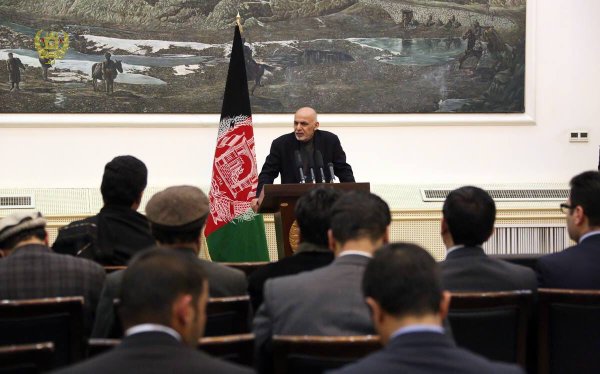Hamid Karzai, former President of Afghanistan, in his 13 year’s Presidency made 20 trips to Pakistan hoping Pakistan would help stabilize Afghanistan. Karzai knew Pakistan ISI’s non-state network backwards because he lived in Pakistan in early 1980s, operating with anti-Soviet Mujahedeen. As President, he even once said if US attacked Pakistan, Afghanistan will side with Pakistan. But his final words while relinquishing office were, “No peace will arrive unless the US or Pakistan want it.” As for the US, with US invasion of Afghanistan underway, a delegation from Carnegie Foundation visited India, their assessment being that US would remain in Afghanistan “minimum 50 years.” This changed, possibly because the US plan for regime change in “axis of evil” countries went awry. The financial costs and adverse US public opinion to body bags arriving back home; realization that Chinese and Russian influence in the region could not be countered in conventional terms – irregular forces having demonstrated greater strategic value over conventional and even nuclear forces.
In 2009, when President Obama abruptly announced pulling out US forces from Afghanistan, the country had not stabilized politically, economically and militarily. Central Asian countries feared terrorism would transcend into Central Asia; expressing the need for an international force along Af-Pak border along with the US-NATO pullout. Their fear was genuine; as seen when Taliban captured parts of Kunduz last year. In light, Russia had to increase its troop strength in Tajikistan.
South Korea at one time was poorer than Afghanistan but the US and international commitment of 65 years has transformed South Korea into an economically and militarily strong country. Without such commitment, China-assisted North Korea would have subsumed South Korea partially, if not fully. That sort of commitment has been denied to Afghanistan by the US and the international community. That is why when Obama abruptly announced withdrawal; many Afghans opined that Afghanistan was being “subcontracted” to Pakistan.
President Ashraf Ghani assumed office in the above backdrop. Ghani went way out of the normal to turn a new leaf in Af-Pak relations. On his official visit to Pakistan as President he broke protocol; driving to Islamabad to meet the Pakistani army chief knowing latter defines foreign and defence policies of Pakistan. Pakistan kept promising that it would persuade Taliban to join the reconciliation process, even while US scholars admitted privately that Pakistan would not do so. Despite all out efforts by President Ashraf Ghani, he has ended up bitter about Pakistan, not different from what Hamid Karzai experienced. Speaking at the Parliament post the 19 April 2016 terrorist attack in Kabul, which killed 64 and wounded 340, President Ghani called upon Pakistan to battle factions of the Taliban rather than trying to bring them into peace talks. He said Taliban leaders finding shelter in Peshawar and Quetta were “slaves”; enemies of Afghanistan who shed the blood of their countrymen. He called on Pakistan to wipe them out. He did not elaborate who was the master of these slaves but his reference may have been Pakistan. Pakistan denies harbouring and aiding Taliban but Ghani urged the Pakistan to “fulfill promises and carry out military operations against those whose bases are in Pakistan.” Ghani said Kabul will no longer seek Pakistan’s role in the ongoing peace talks with Taliban.
Later, DK Meenpal, Ghani’s spokesperson, told the media, “Pakistan still supports groups involved in fighting in Afghanistan” alleging that the Kabul attack was “planned by the Haqqani network in Pakistan.” He further added, “Pakistan is in the state of isolation. We want to use diplomatic initiative to isolate Pakistan at regional and international levels and to tell the world community where terrorists are and which country and intelligence [agency] support them.” It may be recalled that when similar truck bombing in Kabul on August 7 last year killed 15 and wounded 400, Afghanistan’s National Directorate of Security had then stated the attacks were carried out by elements of the Pakistani army with the help of Haqqani network. Afghan clerics gathered at the site gave a call for jihad against Pakistan.
The question of Taliban reconciliation doesn’t arise when Mullah Akhtar Mansoor, Afghan Taliban chief has categorically declared, “We will continue our Jihad until the creation of an Islamic system. The enemy with their talk of peace is trying by this propaganda to weaken the jihad.” Mansoor has rallied together Afghan Taliban and TTP, as acknowledged by the Director of US National Intelligence. The ISIS in Afghanistan is actually a brigade worth of the Taliban cadres, both Afghan and TTP. Plenty of cadres from Pakistani Mujahid units have entered Afghanistan in garb refugees.
Afghanistan raising the issue of Pakistan’s involvement with terrorists at international stage, particularly at UN (as confirmed by Hekmat Karzai, Deputy Foreign Minister, Afghanistan attending the Heart of Asia Conference at New Delhi), will likely be stonewalled by China. PLA is already deployed in Pakistan and China is raising three more Divisions to protect the CPEC. US too will likely make only perfunctory noises what Obama having sanctioned $265 in military aid to Pakistan during 2016. Even F-16s on questionable grounds, described by Robert Blackwill, former US ambassador as “failure of Einstein-ian proportions.”
The aim of the Obama administration and the CIA in Af-Pak remains ambiguous; reports having emerged about Saudi-US role in emergence of ISIS and US even overlooking Saudi and Pakistani role in 9/11. Afghanistan definitely needs focused international support. While anti-Taliban operations are ongoing in Afghanistan including in Badakshan region, the C-130 aircraft shot down over Jalalabad last October was likely by a Stinger/QW-1M missile supplied by Pakistan-China. A 2014 Pentagon report acknowledge ANA short of artillery, air, logistics, transportation and medical. As Afghanistan goes into parliamentary elections, the future certainly looks more turbulent.

